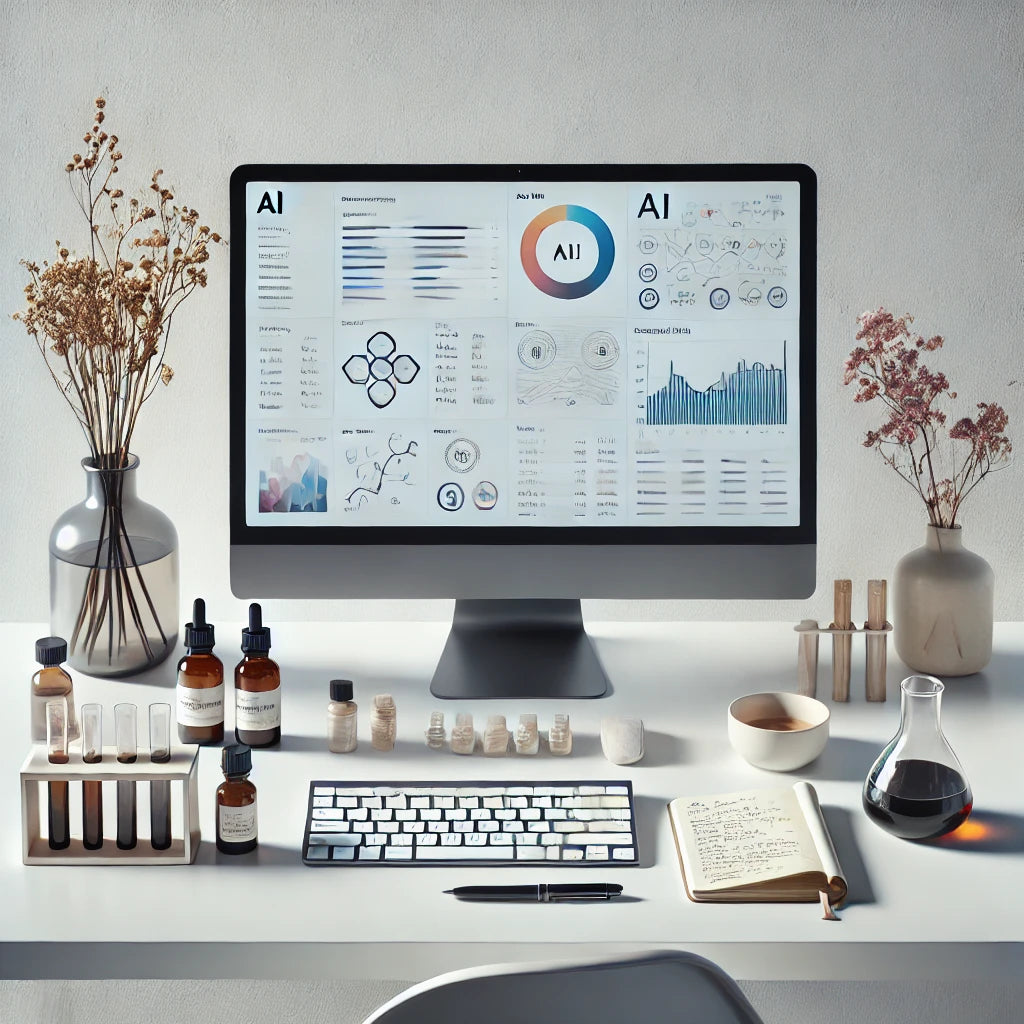As an aromatherapist, instructor and author. I often think of the moral dilemmas that accompany the rise of artificial intelligence (AI), particularly in comparison to the value of personal human interaction. While I recognize AI’s potential to greatly enhance productivity, I firmly believe that it should complement, not replace, the subtleties and depth of human behavior.
Throughout history, humans have continuously adapted to technological advancements. From the industrial revolution to the digital age, we’ve evolved alongside our developments, weaving them into our lives while holding on to what makes us uniquely human. This evolution can not be avoided because it is driven by our curiosity and desire for improvement.
Reflecting on the past, I am in awe of how we’ve navigated each technological transition. At 66 years old, I’ve witnessed numerous innovations that have transformed our world. It’s almost surreal to consider how life was before these changes took hold.
My first significant encounter with technology was in the 1990s. I was traveling alone for the first time and found myself in a hotel with a key card, instead of traditional keys—a novel concept at the time. Standing in front of that door, I felt a surge of anxiety as I fumbled with the unfamiliar card. But once I figured it out, a profound sense of relief washed over me, and I vowed to keep up with new technologies to avoid feeling left behind.
The pace of technological change over the past 40 years has been astonishing. For instance, calculators began being used in schools in the late 1970s and early 1980s, despite initial resistance, and became widespread by the 1990s.
I vividly remember the debate surrounding the internet, with skepticism about this mysterious “web in the sky” and the struggle to grasp its concept, yet now it has become an integral part of our daily lives, seamlessly embedded into everything we do.
In the early 90s, email began to replace traditional mail and memos, revolutionizing communication. By the mid-90s, word processors started to replace typewriters, bringing tools like spell checkers that made writing more accessible. As the 90s came to a close, bookkeeping evolved into sophisticated accounting platforms, and websites began to replace printed pamphlets, business cards and stores.
The 2000s also introduced the rise of online learning, which began to supplement in-person classes and conferences, while smartphones started to replace landlines, transforming our ways of connection. The way we consume media also underwent a radical shift, with streaming services beginning to overshadow traditional television. Internet banking and ATMs, introduced in the late 90s and early 2000s, started to replace visits to the bank teller, and by the 2010s, online shopping began to dominate over trips to physical stores.
Now, in the 2020s, we stand at the cusp of AI becoming an integral part of our daily lives. The ethical implications are profound, and rightly so. It is crucial that we approach AI with a sense of responsibility, ensuring that it enhances our lives without eroding the value of human interaction. AI should be seen as a powerful tool—but not as a substitute for genuine human connection. We must discern when AI serves as a helpful assistant and when it merely mimics human behavior, lacking the depth of real experience.
For example, the thoughts I share with you now are entirely my own. ChatGPT has simply helped me organize them into a clearer and more coherent format. “ChatGPT is an AI tool that helps users generate and refine text by understanding and responding to their prompts.” OpenAI. (2023)
As someone who has always struggled with writing, spelling, and grammar, I’ve often viewed these challenges as a hindrance. Over the years, tools like human editors, Grammarly, and spell checkers have been invaluable. Now, ChatGPT has joined that toolkit, refining my thoughts and making them more accessible to others.
I intend to use ChatGPT primarily as an editor to refine and polish my writing. Additionally, I plan to leverage its capabilities as a productivity tool to help organize my thoughts, create detailed charts about essential oils, and assist in formulating and understanding research studies. However, I will never use ChatGPT to diagnose or prescribe treatments, as I believe doing so would be unethical and would diminish the value of my expertise in aromatherapy.
I remain optimistic about the future, but it is imperative that we embrace these advancements ethically. As we integrate AI into our lives, we must do so in a way that supports and enhances our humanity, rather than diminishes it.
Disclaimer: This article was authored by me, with editorial assistance provided by AI technology. While the ideas and perspectives presented are entirely my own, AI was utilized to refine and organize the content for clarity and coherence.
Reference: OpenAI. (2023). “ChatGPT: AI language model developed by OpenAI, designed to assist with generating human-like text based on input prompts.”
